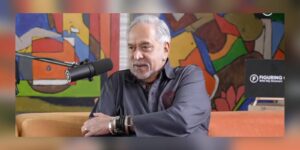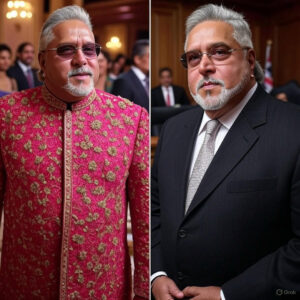Why DeepSeek’s Engineers Can’t Leave China and What It Means for the Global AI Industry
In a surprising move, the Chinese government has designated DeepSeek, a leading AI startup, as a “national treasure.” This status has led to significant changes for the company’s top engineers, including travel bans and passport confiscations. Here’s a detailed look at what this means for DeepSeek, its employees, and the global AI industry.
Table of Contents
ToggleDeepSeek's Rise to Prominence
DeepSeek has quickly become a major player in the AI industry, known for its cutting-edge technology and innovative solutions. The company’s rapid growth has not gone unnoticed by the Chinese government, which has now taken steps to protect its intellectual property and trade secrets.
The 'National Treasure' Status
Being labeled a “national treasure” is both an honor and a burden. For DeepSeek, it means increased government oversight and stringent measures to prevent the leakage of sensitive information. The Chinese government is keen to ensure that DeepSeek’s advancements in AI remain within the country, safeguarding its competitive edge on the global stage.
Travel Bans and Passport Confiscations
One of the most controversial measures taken by DeepSeek is the confiscation of passports from its top engineers. This move is aimed at preventing these key employees from traveling abroad, where they might be tempted to share or sell proprietary information. The travel ban has raised concerns about the personal freedoms of these engineers, but it underscores the lengths to which the Chinese government is willing to go to protect its interests.
Economic and Political Implications
The implications of DeepSeek’s ‘national treasure’ status extend beyond the company itself. This move highlights the growing tension between China and other countries over technological advancements and intellectual property. It also raises questions about the future of international collaboration in the AI industry.
The Global AI Industry's Response
The global AI industry is watching these developments closely. Companies and governments around the world are concerned about the potential for similar measures to be implemented elsewhere. There is also a growing debate about the ethical implications of restricting the movement of highly skilled professionals in the name of national security.

Jugaad on Two Wheels: The Hilarious Bike Parcel Hack in Karnataka
The Great Karnataka Bike Parcel Hack: A Jugaad Masterclass #RapidoParcel: In a creative yet controversial move, ride-hailing platform Rapido has found a way around Karnataka’s

Denmark’s Digital Sovereignty Revolution: Linux and LibreOffice Lead the Way
Introduction to Denmark’s Bold Move In June 2025, Denmark’s Ministry of Digital Affairs made headlines by embracing digital sovereignty, ditching Microsoft Windows and Office 365

🏏Sports as a Business Strategy: Insights from Vijay Mallya’s RCB Ownership
🧠 Sports as a Business Strategy (Tool) In modern business, few platforms offer better engagement and emotional connection than sports. From football clubs in Europe

🙏 Apologies in Leadership: Vijay Mallya Public Apology
🧠 Introduction: The Role of Apologies in Leadership In the corporate world, apologies aren’t signs of weakness—they’re strategic acts of leadership. When made with sincerity

Audiobook Production Costs: Navigating Recording Artists, Studio Expenses, and AI’s Impact
The audiobook industry is booming, with over 130 million listeners in the U.S. alone in 2021 and a growing global appetite for audio content. Producing

Media Trial of Vijay Mallya: How Public Perception Shaped Vijay Mallya’s Legacy
Introduction: Media’s Influence on Business Narratives In today’s hyper-connected world, media narratives can make or break a business reputation. For Vijay Mallya, once known as

